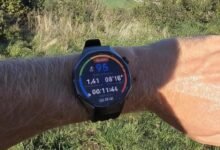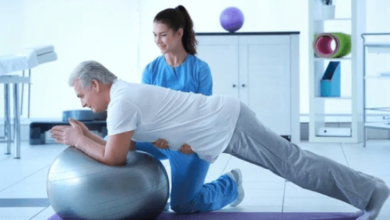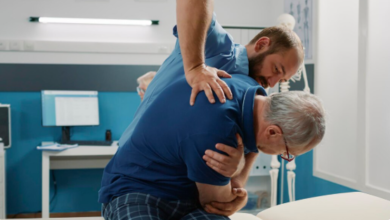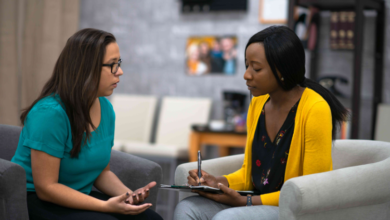PTSD Treatment In Orange County: Finding the Right Help for Recovery
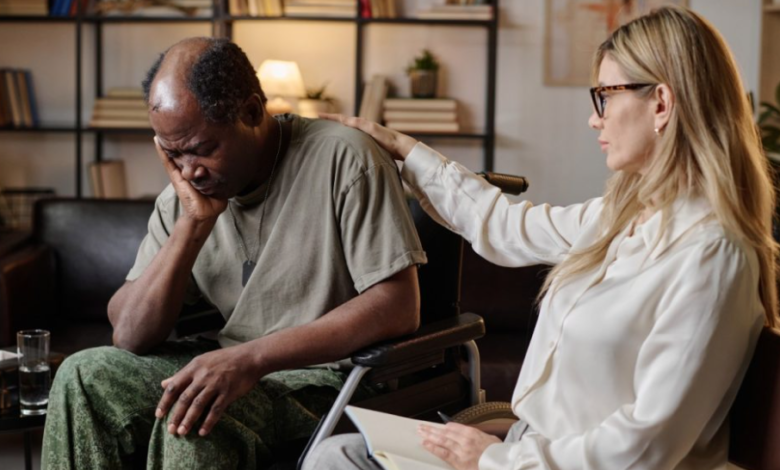
If you or someone you care about is dealing with post-traumatic stress, you don’t have to face it alone. In this article, we’ll explore the vital role of PSTD near me, how they help, what to expect, and how to connect with local resources (including PTSD treatment in Nashville).
Why Searching for “PTSD Treatment Near Me” Matters
Trauma can leave deep wounds—emotional, psychological, relational, and sometimes physical. Many survivors of trauma wrestle with intrusive thoughts, nightmares, hypervigilance, avoidance behaviors, emotional numbing, and challenges in trust or intimacy. These symptoms often persist beyond what one might expect and can seriously impair quality of life.
While individual therapy and clinical interventions are essential, support groups offer a complementary environment of peer connection, normalization, and encouragement. In Nashville, where resources for mental health are growing, PTSD support groups Nashville play a critical role in helping trauma survivors rebuild hope.
Here’s why they matter:
- Shared experience: When you tell your story to others who “get it,” you feel less isolated.
- Modeling resilience: Hearing how others cope, survive, and heal can spark ideas for your own roadmap.
- Practice in vulnerability: Groups create safe space to express and process emotions.
- Accountability and encouragement: Peers hold each other in a healing intention.
- Cost-effective: Support groups are often more affordable than one-on-one therapy.
Signs It’s Time to Seek PTSD Treatment
Below is a survey of various PTSD / trauma-related support groups and therapy groups that operate in or near Nashville. Availability, format, and membership conditions may vary (please contact organizations in advance).
1. Trauma Process Group (Open Adult)
Nashville Therapy hosts a Trauma Process Group open to adults age 18+. This group combines writing prompts, structured sharing, and feedback in a safe environment.
If you’re already in individual therapy, this type of group can enrich your progress by adding peer processing and relational insight.
2. Trauma & PTSD Support Groups via PsychologyToday Listings
Several groups in Nashville are listed under Trauma and PTSD Support Groups via PsychologyToday—including both in-person and virtual options.
Examples include:
- EMDR groups for adult survivors of sexual trauma.
- “Parenting While Reparenting” groups for those processing childhood trauma.
- Mindful movement/self compassion groups combining journaling, mindfulness, and group processing.
You can filter on PsychologyToday by “trauma / PTSD” to find local groups.
3. Safe Haven Therapy – Specialty Trauma Groups
Safe Haven Therapy in Nashville offers trauma-related small groups (e.g. groups focused on relational trauma, vulnerability, recovery) with defined session lengths.
For example, their Mother Hunger group is an 8–10 week series focused on relational wounds.4. Peer Support via NAMI / Community Programs
While not limited solely to PTSD, peer support groups via NAMI Davidson County are accessible in Nashville.
NAMI’s Connection groups are peer-led, free of cost, and meet regularly.
These groups may not focus exclusively on trauma, but they do provide a supportive community for people with mental health challenges, which can include PTSD.
Also, Tennessee has Peer Support Centers throughout the state, which provide free peer support for those with mental health and substance use challenges.
See also: Finding the Right Therapist Modesto: A Guide to Mental Health Support
5. Institutional & Hospital-Based Programs
- Trauma Survivors Network (Vanderbilt / UT Medical Center): Provides community, resources, and network connection for people recovering from traumatic injury.
- Ascension Saint Thomas Behavioral Health: Offers group therapy as part of PTSD / trauma treatment in a hospital setting.
Institutional programs may require referral, intake evaluation, or insurance eligibility.
How to Choose the Right PTSD Support Group for You
Not every group will be the perfect fit. Here’s how to evaluate options and make a choice that aligns with your comfort, needs, and goals.
| Factor | Considerations | Questions to Ask |
| Format | In-person, virtual, hybrid | Do you prefer face-to-face connection or remote convenience? |
| Facilitation | Peer-led vs therapist-led | Does the facilitator have training in trauma, group process, ethics, crisis management? |
| Focus / Modality | EMDR, narrative, mindfulness, cognitive processing, relational healing | Are you comfortable with the therapeutic style? |
| Group size & duration | Small (5–8) vs larger; short-term (8–12 weeks) vs open-ended | How many people will share? Will you always be able to speak? |
| Costs & availability | Free, sliding-scale, insurance, membership fees | Are there fees or a hidden cost? Does your insurance cover it? |
| Screening / intake | Some groups require an interview or assessment | Is there a matching or screening process to ensure safety and fit? |
| Safety & boundaries | Confidentiality, trauma-informed practice, crisis protocol | How are confidentiality and emotional safety handled? |
You might begin with one group and later switch if it doesn’t feel like the right fit. It’s OK to “shop around” until you find your safe space.
What Happens in a PTSD Support Group?
Here’s a rough outline of structure, content, and what to expect if you attend your first meeting:
1. Welcome & Grounding
Most groups begin with a brief check-in or grounding exercise (mindful breathing, body scan, short meditation) to bring focus and safety into the room.
2. Check-in / Personal Sharing
Each member may briefly share where they are (emotionally, physically) and what they hope to work on that day. The facilitator may limit time per person to ensure space for all.
3. Thematic or Process Segment
The group may work on a focused theme (e.g. managing flashbacks, coping with guilt, building safety) or open process (members respond to prompts, discuss whatever is alive). Sometimes writing prompts, worksheets, or experiential exercises (art, movement, somatic practices) are used.
4. Reflection / Feedback
Members may reflect on what resonated, where they felt triggered, and where they want to shift. The facilitator may emphasize boundaries, pacing, and self-care.
5. Closing Ritual
Most groups close with a grounding exercise or intention setting (e.g. “What helps me come back to myself after this group?”). Facilitator may remind members of crisis resources or self-care plans.
Benefits & Risks of Engaging in Group Work for PTSD
Key Benefits
- Less isolation: Realizing you’re not the only one suffering can be deeply healing.
- Perspective & insight: Others’ experiences may spark personal understanding or shifts.
- Social learning: You learn relational skills (listening, feedback, boundaries) in a safe container.
- Accountability & encouragement: Group helps you stay motivated in recovery.
- Expansion of safety: Through successive exposures in group, you can grow tolerance of vulnerability and trust.
Potential Risks & Challenges
- Triggering material: Hearing others’ stories may trigger memories or overwhelm.
- Boundary violations: Poorly managed groups can allow some voices to dominate.
- Confidentiality concerns: Especially in open or loosely vetted groups.
- Mismatch in style or pace: A group that’s too clinical or too loose may feel unsafe.
- Burnout / emotional fatigue: Repeated exposure to intense material can be draining.
To mitigate risks:
- Begin gently (e.g. dip your toe first—attend a session without sharing).
- Ask about the group’s trauma-informed practices, co-facilitation, and crisis protocols.
- Use self-care, journaling, grounding tools before and after meetings.
- Keep your individual therapist informed and process group content there as needed.
Practical Tips for Joining & Engaging in a PTSD Support Group
- Contact in advance — Confirm meeting times, location, rules, and whether pre-screening is required.
- Visit a group first — Many groups allow a “trial session” before you commit to sharing.
- Bring your “toolkit” — Grounding tools, journal, water bottle, phone list of supports.
- Set a personal boundary — You don’t have to share everything; share only what feels safe.
- Pace your participation — Attend regularly, but take breaks if overwhelmed.
- Reflect afterward — Use journaling or individual therapy to process what came up.
- Stay self-compassionate — Progress takes time; group work may surface difficult emotions.
How PTSD Support Groups Fit into a Broader Treatment Plan
PTSD recovery is rarely linear and rarely handled by a single approach. Support groups work best when integrated with:
- Individual therapy (e.g. EMDR, CPT, PE, somatic therapies)
- Medication management (when clinically indicated)
- Psychoeducation & skills training (e.g. breathing, emotional regulation, grounding)
- Holistic modalities (mindfulness, yoga, expressive arts)
- Crisis / safety planning
When choosing a trauma-informed provider or facility, look for organizations that offer both PTSD support groups Nashville and clinical treatment. (Again, see the resource at for more about combining these.)
Real Voices: Why People Choose PTSD Support Groups in Nashville
“I felt so alone until I found a trauma group here. Hearing others tell their stories—sometimes identical elements—gave me courage to face my own.”
“My therapist recommended the group as a ‘relational lab’—it’s where I practice being vulnerable again.”
“At first, I was terrified to speak. But after a few sessions, I realized the group was the only place I could talk about things I couldn’t say elsewhere.”
These are fictional anecdotal voices, but they mirror what survivors frequently report: connection, validation, and incremental recovery.
How to Start Searching for a PTSD Support Group in Nashville
Start with these steps:
- Visit group directories like PsychologyToday — Filter by “Trauma / PTSD” and your ZIP code.
- Contact local mental health practices — Ask whether they host trauma process groups (e.g. Nashville Therapy, Safe Haven, etc.).
- Reach out to NAMI Davidson County — Ask whether they host or know peer support options.
- Explore Peer Support Centers in Tennessee — You may find local meeting locations near Nashville.
- Check institutional programs — Vanderbilt’s Trauma Survivors Network, Ascension Saint Thomas, etc.
- Ask your clinician — If you’re in individual therapy, ask your therapist whether they run or partner with a group.
Once you find some candidate groups, map out logistics (time, cost, format) and try one session to see how you feel.
Encouragement & Final Thoughts
Deciding to attend a PTSD treatment near me is an act of courage. It means saying: “I matter. My healing matters.” In the group, you’ll find people willing to witness your pain, hold space, and remind you of your inherent worth—even when PTSD tries to convince you otherwise.
Some closing encouragement:
- You are not broken — you are wounded, and wounds can heal.
- Healing is relational — it doesn’t happen in a vacuum; connection is part of the medicine.
- Small steps count — even attending one session is progress.
- Be kind to yourself — your nervous system may resist; patience and gentleness matter.
You deserve support — no one should brave the journey of trauma alone.

